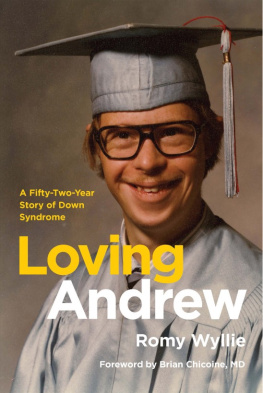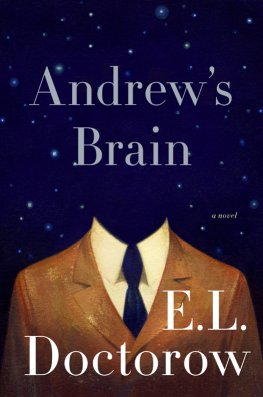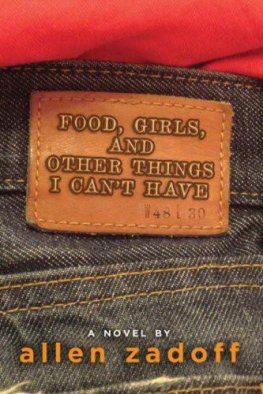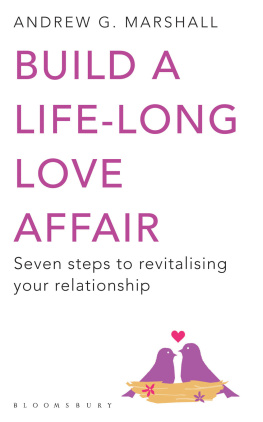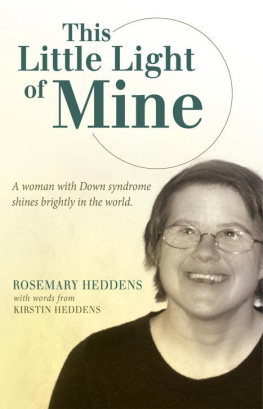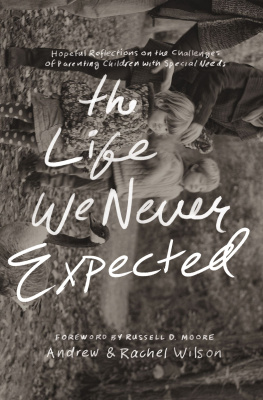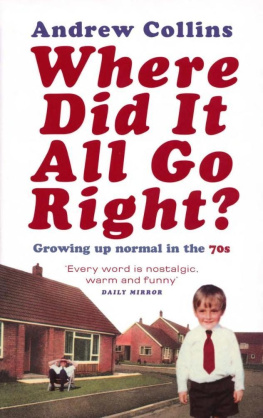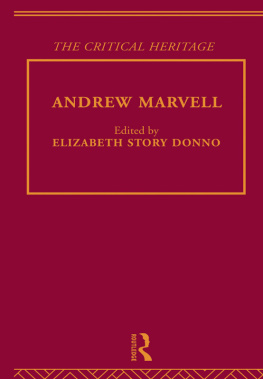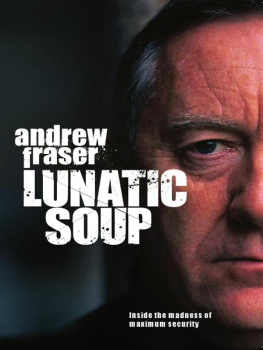A Fifty-Two-Year Story of Down Syndrome

Romy Wyllie
Foreword by Brian Chicoine,MD
Copyright 2012 by Romy Wyllie
Smashwords Edition
All rights reserved. Except for attributedquotations used in critical articles or reviews, no part of thisbook may be reproduced in any form without permission in writingfrom the author.
Excerpts from this book have been previouslypublished as opinion pieces in national newspapers.
Print ISBN: 978-1478298342
Library of Congress Control Number:2012919427
Book Design by James Alexander of Jade Design( www.jadedesign.co.uk )
Ebook Formatting by Maureen Cutajar( www.gopublished.com )
To Andrew
To know Andrew was to love him.
Rev. Patricia Snickenberger
Contents
Illustrations
Photographs
Figures
Foreword
Romy Wyllies Loving Andrew: AFifty-Two-Year Story of Down Syndrome is about her son Andrew,who was born with Down syndrome in 1959. The reader is given anin-depth look into Andrews life. We not only get to know Andrewthe person, but we also get to know Andrew as part of a family andpart of the developing Down syndrome community.
As the medical director of the Adult DownSyndrome Center (of Advocate Lutheran General Hospital and AdvocateMedical Group), a facility that has served the medical andpsychosocial needs of over five thousand adolescents and adultswith Down syndrome, I have had the opportunity to get to know manypeople with Down syndrome and their families. However, I alwaysappreciate any occasion to get a more in-depth look into the livesof those individuals and their families. This book is one suchopportunity.
Romy Wyllie has shared Andrews journey withus but also her journey and that of her family. I was blessed toknow Andrew, to be part of his life, and to experience joy anddiscomfort with him. Even knowing all that, I learned from readingthis book. I have a better understanding of Andrew, and with that Ican bring this enriching experience to the next person with Downsyndrome I serve.
Andrew was born just a few months after Dr.Jrme Lejeune published his finding that Down syndrome is causedby an extra twenty-first chromosome. Since then there has been muchdiscussion of the implication of having an extra chromosome. Whatdoes it mean? What are the genetic ramifications, the individualand family opportunities and challenges, and the societal issues?How is Down syndrome defined? How can we loosen the bonds of thatdefinition?
Families of a younger person with Downsyndrome have often commented that their experience is verydifferent from that of a family with an older adult with Downsyndrome. While the genetics has not changed, the lives of peoplewith Down syndrome have changed tremendously. I described thatdifference by the phrase two syndromes. When my great-uncle Leowas born in 1907, he was called a mongoloid, the term of thetime. He had Down syndrome. My great-great-grandmother was toldthat Leo would probably not live past ten years of age, would neverwalk, would never talk, would have no school opportunities, andwould certainly not live beyond his parents, so there was no needto plan for the future. Hopefully this is not what parents arebeing told today, and certainly it is not the experience of thisgeneration of children with Down syndrome. The genetics is thesame; the experience different. Why the change? Mrs. Wyllie givesus much insight into those questions through her description ofAndrew and his opportunities, his achievements, and the challengeshe faced.
To understand who we are, it is helpful toknow where we have been. The language in the sections of the bookdescribing Andrews youth, now considered outdated, helps oneunderstand the times. Will future generations look at us now andalso be puzzled? Previous generations were no more completely wrongthan we are completely right today. Instead of following medicaladvice and placing their offspring in an institution, the Wylliesand other families raised and loved their special children, and indoing so made a generous gift that propelled forward the societalview of and approach to people with Down syndrome. It is a process,an evolution. Mrs. Wyllie writes, Once again our preconceivednotions about the limitations of Down syndrome were being castaside. How often can we continue to say that today?
In chapter 21, Mrs. Wyllie describes therequests, in 1982 and again in 1995, of her family and otherparents for married housing at Lambs Farm where Andrew lived. Theseare still issues we are grappling with today without resolution atmost supported residences. We are on a journey.
This book is about the hope of that journey,and it is told through the life of an amazing, delightful, loving,fun, and caring man. Each person has a story. Andrew certainly hadhis. In this book, you will get to know Andrew, learn his story,appreciate him, and love him. Perhaps you, too, will experience thejourney, the hope, and the casting aside of preconceivednotions.
Brian Chicoine, MD
Medical Director
Adult Down Syndrome Center
Advocate Lutheran General Hospital
Advocate Medical Group
Park Ridge, Illinois
Preface
When I left the airport, they went in theother plane with my air ticket. Both of them follow me toCalifornia. They are here and trying to take me back to Chicago,but my parents wont let them. Andrew, our son with Down syndrome,was writing a postcard to his girlfriend in Chicago, where theyboth lived at the Lambs Farm in Libertyville. This was in thesummer of 2000. Andrew had turned forty-one in April and since histhirty-ninth year had been suffering a mental illness characterizedby delusions and auditory hallucinations. The postcard talked abouttwo of them following him just when he had expected to leavethem behind in Chicago and be able to enjoy his vacation inCalifornia free of his demons.
Between high school graduation and histhirty-eighth birthday, Andrew had been a highly successful manwith Down syndrome, working full time in a regular job and leadingan enjoyable and rewarding life under the umbrella of an adultresidential organization for the developmentally disabled. With theonset of later years (he turned fifty in 2009), he faced theadditional challenges of paranoid schizophrenia and Alzheimersdisease. Despite these setbacks, he was still happy and full oflove.
The purpose of this book is to give a fullaccount of the challenges and rewards of bringing up a child with adisability. In 1959, at a time when parents were urged toinstitutionalize their mongoloid babies because the prognosis fortheir development was so grim, we chose to bring up our son as anintegral part of our family. Although friends had urged us to writeour story ever since Andrew was small and it became clear that wewere going to help him make the best of his handicap, I hadhesitated to tackle the project. Then in October 1993, adevastating wildfire swept through our neighborhood, destroying sixof the eight houses immediately around us. Our house remainedintact in the center of a ring of fire. While our neighbors siftedthrough their ruins for a treasured ring or shred of a familyphotograph, we thanked God and a guardian angel for our goodfortune. I thought of all the letters, photographs, notebooks, andarticles I had been saving over the years with the intention ofsomeday using them as source material. Realizing that I still hadmy collection, I heard a voice saying, Your house was saved fora reason; its time to stop procrastinating and get on with thatbook. The book was completed in 1995 but for various reasonswas shelved until new challenges in our sons life inspired me toadd to his story.

